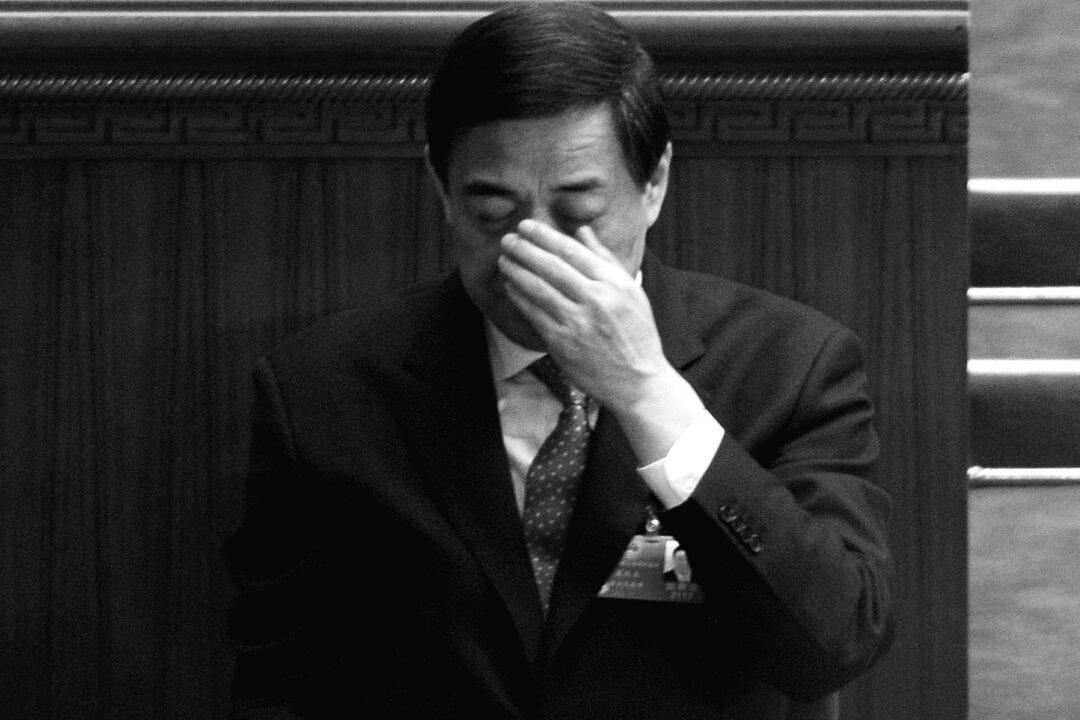News Analysis
Ostensibly, Bo Xilai, the former Politburo member facing trial, is only guilty of “bribery, corruption, and abuse of power,” as the announcement of his indictment said. But editorials in Party mouthpiece newspapers hint that Bo is actually guilty of much graver charges: namely, political deviancy, and attempting to usurp the power of the central leadership.
These charges are never made explicit, but political observers of the Chinese Communist Party and its arcane political telegraphing take that reading of remarks published soon after the announcement of his indictment on July 25.
“Safeguarding a unified central government and its decrees and following the central leadership... remain the steadfast mainstream of our times,” wrote Xinhua, the state news agency, in a commentary titled “Loyalty to the Central Government is the Key to Stability,” according to a translation by Chinascope, a Washington, D.C.-based group that analyses Party doctrine. The article was specifically about Bo and his trial.
Duowei, an overseas Chinese-language online news outlet, said that the reason for Bo’s downfall was a “line error.” The term refers to a deviation from the doctrine set down by the central leadership, and is a highly charged political label that was applied to the Gang of Four, the group of officials on which the tumult and violence of the Cultural Revolution was blamed.
The term was also used against a range of high-level former Party members who were at one time or another very close to the top leadership. These include Li Lisan, the leader of the CCP from 1928-1930, who was accused of “left wing adventurism” (a line error); Wang Ming, at one point considered a rival to Mao, who was accused of “dogmatism” (line error); and Chen Duxiu, a founding member of the CCP, who was guilty of “right-wing opportunism” (another line error).
Bo has not, at least yet, been affixed with a similar singular ideological mistake. On the surface he is only being charged with legal, rather than political, crimes. And the Party now does not employ such hackneyed terms as “line error” in its propaganda.
“The Chinese criminal code doesn’t have anything about political line errors,” says Wen Zhao, a commentator on Chinese political affairs with the broadcaster NTD Television. “So they used judicial enforcement to deal with him, while using Xinhua to tell the cadres the real situation. The basic issue is that he challenged the authority of the Party. They can’t say such things in court, of course.”
According to Duowei, “In Chongqing, [Bo] set himself up as a rival to Party Central. This kind of high-level line error is the real unforgivable act, outside of the law.”
The Xinhua article compared Bo to Qin Shi Huang, the first emperor of the Qin dynasty, known in history as a tyrant, and said that Bo had “founded an independent kingdom, opposing Party Central.”
“China’s historical experience has repeatedly shown that only safeguarding the central authority can ensure the long-term stability of our country. The central government makes policies and changes personnel from the perspective of the whole country. Its decisions are based on the foundation of the national interest,“ Xinhua said. ”Policies and personnel changes may touch local interests, but minor matters need to be subordinate to major ones in order for the reform, development, and stability of the country to benefit.”
The Party’s propaganda about the matter was content to confine itself to dogwhistling, without going into the details of how Bo had conspired to challenge the central leadership.
Reports from last year, however, indicate that Bo had infiltrated some of the most sensitive security functions in the Party and was able to eavesdrop on top leaders.
Well-placed sources inside China also told Epoch Times, in a series of leaks, that Bo was part of a conspiracy with former regime leader Jiang Zemin, and former security czar Zhou Yongkang, to effectively usurp power from Xi Jinping, currently the head of the CCP. The three had become united in a clique to gain control of the Party because of their shared involvement in the persecution of Falun Gong, sources told Epoch Times, including activities associated with the harvesting of organs of Falun Gong practitioners. Bo Xilai’s right-hand-man, Wang Lijun, admitted to conducting “thousands” of on site organ transplantations, leading experts to suspect that, based on a range of circumstantial factors, many of the victims were most likely Falun Gong practitioners.





